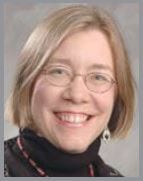Coming to Terms Questions and Answers on Pregnancy and Older Women
Q. I am 35 years old, and my husband and I are now ready to have a family. My friend told me that, at my age, I am considered to be high-risk. I thought concerns began after age 40.
A. Age-related risks gradually increase over time. The term ‘advanced maternal age’ applies to women 35 and over like yourself, and is related primarily to the risk of having a baby with a genetic disorder such as trisomy 21 (Down syndrome).
At the age of 35, the risk of trisomy 21 is about 1 in 350, and still less at age 30. But at age 40, the risk increases to 1 in 85. Most of our screening tests focus on this disorder since it is so common.
Q. What are the risks of having a baby at my age — for me, and for my baby?
A. There are some risks that increase with age. The risks for you are related to the general increased risk for medical disorders such as hypertension or diabetes. If you are in good health, the risks are only slightly increased. There is an increased risk of genetic disorders and miscarriage with increasing age. The majority of women in their 30s and early 40s have uncomplicated pregnancies with modern medical care.
Q. What past illnesses should I take into consideration, as well as family history?
A. Ideally, you will be in optimum physical health before getting pregnant. Past illnesses that have resolved do not usually have any impact, with one or two exceptions, which still can be managed. Any ongoing medical problems, such as diabetes, hypertension, or depression, or chronic viral illnesses like hepatitis or HIV, should be in excellent control.
Some medications should be changed in pregnancy, but stopping medications suddenly is usually not a good idea.
A family history of blood clots, birth defects, or complications with pregnancy are important to be aware of. Often, we can offer testing and/or take preventive measures to minimize the risk for your pregnancy.
Q. Are there things I should do in preparation for becoming pregnant?
A. It’s a good idea to stop smoking and limit alcohol to one or two drinks a day at most, with the intention of stopping as soon as you find out that you’re pregnant. Avoid drugs such as marijuana, which can have a lasting effect.
Regular exercise and eating a balanced diet with vegetables, fruit, and plenty of fiber is always a good idea.
If you have never had chickenpox and are not immune to rubella, you can be vaccinated to minimize risk, but there needs to be a three-month gap prior to conception.
Start taking a vitamin with folic acid about three months prior to becoming pregnant. Most women’s vitamins contain this.
Q. Should I consider genetic counseling or testing?
A. There are now non-invasive methods of screening for genetic disorders, in addition to ultrasound, which looks for other congenital abnormalities. You should discuss this with your provider when you are pregnant.
Q. I am currently on the pill. Is there a special time to stop it? How will that affect my becoming pregnant?
A. It is safe to continue taking the oral contraceptive pill until you are ready to be pregnant. It will not affect your ability to conceive or your pregnancy.
Q. Because I am older, am I likely to have more difficulty becoming pregnant, and are there things I can do to increase my chances of becoming pregnant?
A. Fertility gradually drops with age, although there is a lot of individual variation. Optimizing your weight and general health can help. Lowering your stress level through exercise or meditation, or any other activity that works, can also be helpful.
If you are under age 35, it can take a year for a healthy couple to conceive. If you are over 35, then we recommend an evaluation after six months of unprotected, regular intercourse. If your periods are irregular, it’s a good idea to see a gynecologist early to evaluate.
Q. Will having a baby at my age have any effects on my overall health after the pregnancy?
A. Not usually. Increasing age increases some of the typical risks in pregnancy, but the impact is rarely lasting.
Dr. Heather Z. Sankey is vice chair and program director of the Department of Ob/Gyn at Baystate Medical Center.



Comments are closed.